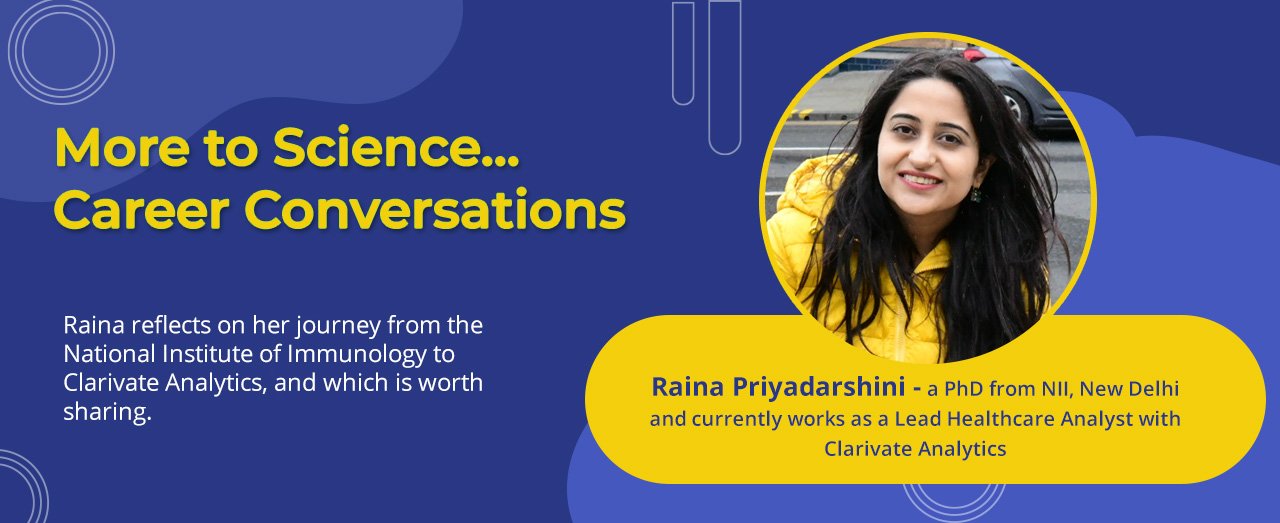
What were your initial years like? Tell us a bit about your background.
I was born and brought up in the small town in Punjab, Abohar. I was fortunate enough to secure a place in the Zoology Hons. program of Hindu College, Delhi University for my graduation and post-graduation. The years I spent in Hindu were instrumental in enabling me to achieve everything that I have been able to do today. I did my PhD at the National Institute of Immunology, New Delhi in molecular biology. I worked on deciphering the mechanisms of signal transduction between tumor suppressor genes and oncogenes.
Most PhDs in science set down to “traditional” academia or industry R&D routes. What appealed to you to choose such an unconventional offbeat career? Tell us a bit about your career path
While I was finishing up my research, I realized that I wanted to do something where the impact of my work didn’t take years to showcase. Research, though incredibly rewarding, its translation to clinical effectiveness can sometimes be extremely slow and can test your patience as nothing else can. So, I decided I wanted to work on something where no matter how tiny my contribution, its effect is palpable. That’s how I discovered my interest in data and healthcare analytics.
I was recruited by E.Z.Bioxcel, a company that focused on providing AI-driven solutions to healthcare companies and developing novel drug target combinations. I worked with them for 2.5 years before switching to Clarivate analytics, where I work as a lead healthcare analyst. I work on writing syndicated reports on rare diseases that talk about the disease landscape and forecast current and emerging therapies for the next decade.
How did you get your first break?
After I finished my PhD, I was trying to explore where I could fit in and what options there might be. To be honest, I didn’t have an idea about the majority of the stuff that I am doing currently. I invested time in understanding where I could contribute and where my skills could provide an edge. I searched through LinkedIn and found a couple of companies that worked in healthcare data analysis. So, I reached out to the recruiters at these firms and got a chance to interview with some of them. I was recruited by E.Z.Bioxcel, where I spent my initial two years learning the ropes and getting a hang of how data analytics can help drive healthcare decisions.
Were there any challenges you had to face while choosing this alternate career path? What do you wish you’d known when you were starting with this role? What would you do differently if you could go back in time?
I would say the biggest challenge that I had to face was the lack of awareness about the sector. I didn’t have a lot of seniors in the field who could mentor me. Most of my seniors had chosen to take up post-doctorate research fellowships and others had chosen lectureships. As a result, I spent a lot of time being unsure about the viability of a career in this field, and I had a lack of knowledge about what exactly would my role entail. I wish I had more clarity while I was pursuing my PhD. I believe it is important for one to know what kind of career options await them. Things do seem to be changing now, however. In the past 5 years that I have spent in this field, I have seen a lot of my juniors take an interest and pursue data analytics in healthcare.
“These are my strongest assets.” [say skills, areas of knowledge, personality traits, and values]. Where would they fit in this field of work of yours? What does it take to be successful here?
I have always loved doing new stuff and learning different things. I have also been a writer in some form or the other all my life. I used to enjoy writing poetry and short stories during my college. It helps if you can coherently articulate your thoughts. The job requires understanding data, but more than that it is critical that you can convey your insights in a comprehensible manner. You act like a bridge who deciphers clinical, scientific data and presents it in a manner that can be used in making decisions downstream.
In this industry, I have seen that individuals who are articulate and can see the data from a bird’s eye view as well as the microscopic details tend to do great. One also needs to be able to adapt to new things, multitask and be good at cultivating interpersonal relationships to be successful here. One needs to work with a lot of different stakeholders in this role, and developing interpersonal relations is a big part of it.
How easy or difficult will it be for fresh PhDs to make a transition to your current field of work?
It makes me happy to say that at this point in time, it has become a lot easier for fresh PhDs to make this transition. We have a significant number of my contemporaries and juniors in this field today. We also try and network through groups, pass on any vacancies that we come across in the field, and are happy to mentor any new juniors trying to make this change.
Based on your experience, your advice for someone interested in a role like yours. Any special word of warning or encouragement as a result of your experience. What skill set do you think is most important for a successful career in your field of work?
I would say that data analytics in healthcare offers great and lucrative career opportunities. But it is also equally important to understand that this job requires a lot of dedication and effort. You need to have good analytical and problem-solving skills; one needs to be good with time management and should be competent in communication.